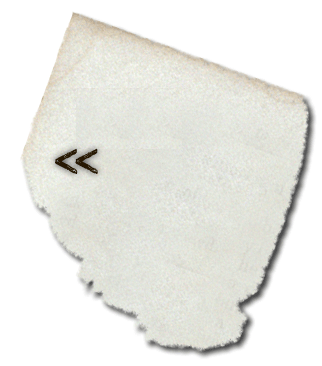Before
Patrice Gopo
The day I lay my daughter to nap on her great-grandmother’s bed, I think, I have been here before. Outside the air is warm like a breath in my cupped hands. Past the front door, a dense fog blinds me to the landscape beyond as the call of a rooster joins the rustle of leaves cloaking thick trees. In this cramped corner room I know I have seen this mattress pressed against a wall. I have watched light from the small window pierce a dark room. But of course this day is my first time in this hidden pocket of rural Zimbabwe. Today my daughter is introduced to her great-grandmother, my husband’s grandmother.
I have been here before. I have stood by this bed. And not this bed. Here. And not here. In a clearing through the trees. Through the secret passage between bowing branches. In this small home. In these rural areas. Not these rural areas. Rural Jamaica. Not a clearing through the trees but the top of a mountain. An introduction to a grandmother I don’t know. I look up to a high bed, my grandmother’s bed. How does she sleep up there, how does she climb in bed, I wonder. There is a light from the window, the small window just above where the mattress meets the wall. The afternoon sun casts streaks of gold across the dim. Someone’s arms lift me. My worn body is placed on the crisp, tight sheets. Even in the cool room, the heavy air and low voices nearby feel like the warmth of a soft blanket. As my bare arms rub against the smooth bed, I turn to the side and curl my knees towards my chest. I drift towards sleep, thankful to be inside as heat bears down beyond the door. For the length of a nap, perhaps the length of a day, I am part of what blows through rural Jamaican leaves on top of this mountain.
In Zimbabwe my daughter sleeps in my arms with her body curved into my side. Her chest inflates and deflates in a rhythmic cycle while soft sleep breath tickles my shoulder. Beside where I stand is the bed she will soon rest on. I don’t remember the climb up the mountain, the fragrant scent of hibiscus saturating the air, the symphony of tropical birds singing in the trees. I can’t taste the rainwater from the heavy drum, dribbling down my mouth, cool like metal. And my grandmother remains without a face. My daughter won’t remember the tears of dew rolling off bright leaves or the chickens skipping across the damp ground. She won’t recall sitting at her great-grandmother’s feet while leather fingers crushed thin peanut shells. Her great-grandmother’s song that welcomed us to this rural home will elude her.
The clap of footsteps on the concrete floor breaks the quiet, and someone spreads a woven blanket across the bed. The strands of wool dive over and under each other as if racing to the worn edge. They lock together to form the tight weave that will separate my toddler from her great-grandmother’s bare mattress. Even as I pull her from my shoulder and place her body against the scratchy surface, her eyes remain closed. My wrists flick a baby blanket in the air, and a cool breeze runs across her body before the weight of warmth settles against her skin.
Is this where longing begins? The desire for passports streaked with stamps. A yearning for cities that become temporary homes. A fake love of skyscrapers and fast planes. Will she also one day take walks through cities with perfect grids and hope for bends in rustic roads? Will unfinished books gather on her nightstand as she stares at rivers with tangled currents moving to some vast unknown? I think this is the birthplace of searching, a searching for something that is lost before we can even remember. Crisp sheets, humid air, the feel of woven blankets beneath us. A searching that doesn’t diminish with a generation but likely grows and grows until it encompasses the breadth and depth of the world.
I stare at her asleep on the blanket. The sunlight crawls across the bed, parting the room’s shadows. Wait, no. Beyond this window a drizzle blankets the ground, burdens the air. A grey light. Yes, a grey light grazes the dim and reveals her face. I think perhaps one day her dreams will unlock this bed, this window, this moment. If nothing more, perhaps she will remember a mattress pushed against the wall and a small window that ushers in light. Perhaps she will say she has been here before.







